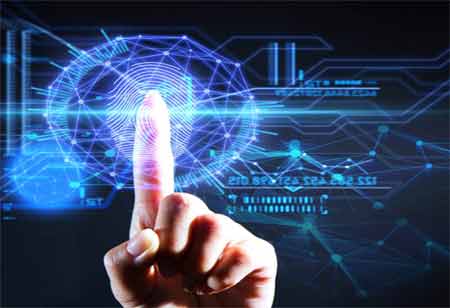THANK YOU FOR SUBSCRIBING
Energy 4.0: Revolutionizing the Future of Power with Digital Transformation
The energy sector is actively embracing digital transformation, called Energy 4.0.

By
Apac CIOOutlook | Thursday, March 07, 2024
Stay ahead of the industry with exclusive feature stories on the top companies, expert insights and the latest news delivered straight to your inbox. Subscribe today.
Energy 4.0 is a digital transformation integrating automation, data analytics, IoT solutions, and innovative energy technologies to optimize production processes, reduce costs, and enhance operational efficiency.
FREMONT, CA: The energy sector is actively embracing digital transformation, called Energy 4.0. This paradigm integrates automation, data analytics, and data science to optimize production processes, bolster flexibility, and enhance operational efficiency. Energy 4.0 initiatives are geared towards developing intelligent grids, effective management of renewable energy sources, and efficient distribution of power generation. Industry stakeholders, including hardware manufacturers and software developers, are aligning their efforts to provide business-centric solutions that seamlessly integrate with existing corporate systems, prioritizing operational reliability and environmental sustainability. As costs continue to decline and technological advancements accelerate, Energy 4.0 enterprises are poised to pioneer novel business models and forge sustainable energy production and distribution pathways.
The Internet of Things in the Energy Sector
IoT solutions are instrumental in augmenting operational efficiency, mitigating vulnerabilities, and optimizing decision-making processes within industries like mining, oil, and gas. Emerging trends within manufacturing, including the integration of drones and advanced sensor technologies, are further bolstering safety measures and operational efficiency. The trajectory of IoT within this sector hinges upon the collaborative efforts of energy enterprises and software development firms to innovate and refine existing solutions.
Digital Twin Technology
Digital twin technology stands as one of the foremost strategic trends, having garnered adoption across an increasingly diverse array of industries following its inception by NASA. A digital twin represents an advanced replication that models a tangible object or process without supplanting it. Leveraging data gleaned from IoT systems affixed to its physical counterpart, the digital twin empowers organizations to monitor pivotal performance metrics vigilantly. The overarching objective is to channel this data into machine learning systems, enabling proactive identification of potential issues, assessment of associated costs, and evaluation of available remedies.
Smart Energy as a Part of Smart City
Urbanization has precipitated a transition towards smart cities, harnessing IoT technologies to enhance quality of life and mitigate energy consumption. Utility enterprises are poised to collaborate with these initiatives, facilitating the development of smart infrastructures and fostering public-private partnerships. Such endeavors are anticipated to deliver mutual benefits for citizens and stakeholders alike.
Blockchain and Smart Contracts
Blockchain technologies' brilliant contracts offer the potential to streamline and enhance the end-to-end delivery of energy. This encompasses emissions accounting and ensuring the authenticity of energy sources specified in contracts. By automating the confirmation and recording of executed trades on the blockchain, significant reductions in delays and settlement costs can be achieved. In emerging markets, blockchain holds promise for facilitating financing, facilitating transactions, and fostering transparency.
Although blockchain technologies are still in a phase of maturation and may not currently possess the robustness required for large-scale markets, production-ready frameworks are continually emerging. For instance, an exemplary demonstration of blockchain's capabilities in the logistics and transportation sector has been recently developed. Its underlying principles are adaptable across various industries, including energy and utilities, offering advantages such as automation, security, and auditability.
Energy 4.0 represents a significant digital transformation in the energy and utilities industry, ushering in unprecedented efficiency, sustainability, and innovation levels. By integrating advanced technologies such as IoT, AI, and data analytics, companies optimize operations, improve asset management, and enhance customer experiences. Embracing this digital revolution is imperative for organizations to stay competitive and meet the evolving demands of the modern energy landscape.





